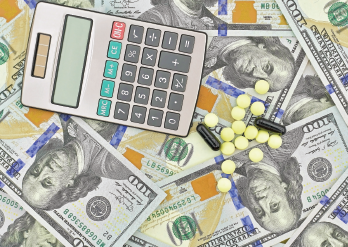
a_v_d / shutterstock.com
“And of course, I am not telling you to do it. That would be illegal.”
As a general rule, I try not to instruct my patients to break the law. My business model depends on repeat customers, so placing a patient at risk of getting arrested—even if that risk is remote—doesn’t seem like a good idea. On the other hand, I am a realist. I know my patients will be cracking crabs this summer, even though I have warned them it may make their gout flare. I also know my patients on methotrexate will sneak a beer now and again, because what’s the point of eating crab if you can’t wash it down with a beer?
When I take a patient’s interval history, I always tell them I want them to tell me the truth. I don’t want to hear a lightly fictionalized account of some ideal patient whom I have not met. I want them to confess their sins, their failings, their shortcomings, so I can help them get where they need to go. And, if they are planning to do something illegal, anyway, I would like to know that, too.
I am, of course, talking about purchasing drugs from Canada.
Of course, you don’t do this yourself. You do, however, know someone who does. In fact, in 2016, 19 million Americans imported drugs into the U.S. for their personal use.1 Americans have a long tradition of purchasing drugs from Canada, dating to the pre-internet era, when this involved driving the family station wagon to Toronto or Montreal. The internet has added jet fuel to this phenomenon, allowing even the least adventurous patient to price drugs across the border.
The reason you (likely) don’t know anyone who has been arrested for purchasing drugs from Canada is that the government looks the other way. Like marijuana in many states, bringing drugs into the U.S. is illegal, but has been de facto decriminalized. As long as the drugs are imported for personal use and don’t exceed a 90-day supply, the federal government will not prosecute anyone’s grandmother for trying to get a cheaper inhaler.2
But the phenomenon is even bigger than that. One company—CanaRx—has worked for years with 500 American towns, cities and school districts, to facilitate the importation of lower cost, brand-name drugs, for the use of their employees.3
Now states want to get in on the action. In June 2019, Florida Governor Ron DeSantis signed legislation that created two programs designed to facilitate the import of drugs from Canada:

